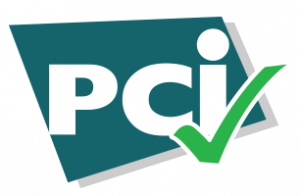Whether you’re a hospital CEO or CFO, you probably lie awake some nights worrying about your organization. Hospitals and healthcare organizations are squeezed into an odd spot: providing healthcare is a blend of critical services for patients and of course, the need to keep the business operating profitably.
Consumers can easily feel sorry for the patient who cannot afford to pay for that emergency heart surgery or for cancer treatment. But who feels sorry for the hospital that’s struggling to stay open? No one — until that hospital closes, putting thousands of people out of work and possibly leaving a community with limited access to healthcare. Hospitals have been closing at a rate of about 30 a year, according to the American Hospital Association, with more expected in the coming years. Many of those are in rural communities, meaning residents there may have to drive miles in an emergency and healthcare workers driving further and potentially moving from these rural communities.
You’ve no doubt read (or lived!) some of these disheartening statistics:
- More than half of provider bills don’t get paid.
- For every dollar billed to patients, providers have historically failed to collect 65 cents.
- The average annual deductible for covered workers is $1,175 and increasing.
- Self-pay has increased by 10 percent over the last five years.
- Consumer bad debt for medical expenses was $65 billion in 2010.
- Seventy percent of providers reported it takes an average of one month or longer to collect payment from a patient.
While hospitals are adept at collecting from insurance companies, that matters less and less, as employers push high-deductible health plans and insurance companies pay less. Today, more people are paying up to 30 percent of their healthcare costs — meaning hospitals have to shoulder the burden of collecting far more from patients. Yet patients are also struggling as the cost of health care increases while their insurance premiums and deductibles rise.
The Patient’s New Approach to Healthcare
Overall, patients are now more selective about the care they seek. In part, this is due to the shift in cost. They will seek less care overall, not seeing a doctor for “minor” ailments or putting it off for longer than usual — which leads to more problems. As one report noted, the intensity of care is one driver of rising healthcare costs. “While the United States has shorter lengths of stay in hospitals than in other countries, and Americans see physicians less frequently when an individual does have an encounter with a hospital or physician, the system ‘goes gangbuster.’”
And you know what happens then. Hospitals and healthcare providers are experiencing more bad debt, more outstanding accounts receivables, and a higher dissatisfaction in patients. That last one leads to higher dissatisfaction among your team members, which adds to staff turnover and costs your organization more.
Patients also have a variety of choices when it comes to doctor’s visits. People now have the option of a video chat online with doctors to get quick questions answered or find out if something requires more attention. Studies show customer service and how people are treated at every step of the experience affects every business, including those in healthcare. So as people see a doctor less, they also feel less connected to your particular office and are far more likely to find a new provider down the street as soon as something goes wrong.

Furthermore, healthcare these days is a slow process, one that requires consumers to pay attention to various visits, providers, prescriptions, appointments, and more. Some patients even forget about care by the time they receive the bill, which, thanks to the back-and-forth with insurance, take several months in some cases. A study of complaints filed with the Consumer Financial Protection Bureau found 63 percent of consumer complaints about medical debt collection claim the debt was never owed, was not verified debt, or was previously paid or discharged through bankruptcy. Now, what does that mean for your organization?
The Revenue Cycle
Revenue Cycle Management is the backbone of healthcare providers, according to John Cook, a revenue cycle director with Appalachian Regional Healthcare System for more than 20 years, and now PRC (Revco Solutions)’ Chief Client Officer.
“Revenue Cycle Management is the single most important aspect of keeping the ship afloat and sailing ahead,” he said. “Cash is the bottom line and it has to be done right.”
In the 1980s, most healthcare insurances paid everything but the private room difference. A patient without insurance either paid in full or set up a payment plan that sometimes was longer than a traditional mortgage. At the time, it seemed to work. Medicare and Medicaid issues were handled with a quick phone call. The stressors then were accreditation surveys and the annual Medicare audit. Many provider workers dedicated their lives to that career.
Cook said things changed with the implementation of the replacement of the G33H insurance claim form to the UB82 nationally standardized form. Following that, Medicare changed to a DRG (diagnosis-related group) reimbursement. From that point on it seemed as if everything started to change and that still holds true today. Technology alone changes constantly.
Revenue cycle management, then and today includes admission, pre-admission functions, financial counseling, customer service, patient experience, insurance billing, and compliance. They all work hand in hand for the desired outcome, which is to keep cash flowing. For example, the Intake Specialist (Admission) must get the right information to produce a clean claim on the back end. It is critical, more than ever, that team members must provide outstanding customer service patient experience.
It has become most important for healthcare providers to offer the patient or their family member with options to secure payment of their financial liabilities. Managers must partner with sound vendors to make this happen. It may require doing something completely different.
Forging Ahead
You know the financial environment of your healthcare world is changing and will continue to change. The rising costs of healthcare are unsustainable and much discussed. What isn’t discussed is the critical importance of the revenue cycle to the financial health of an organization.
If you manage the financial side of the healthcare business, you probably know this. There are at least 7 basic steps when it comes to managing a healthcare system’s revenue cycle and to do so successfully means to be intimately familiar with each of them. And yet so many organizations aren’t taking steps to address hiccups in their complex revenue cycle that could save them millions of dollars. Meanwhile, roughly 25 percent of all U.S. hospital spending consists of often times unnecessary administrative costs.

We can’t always control the outside forces changing how healthcare works, but we can make changes within our companies to make them run better — both for our bottom line and for patients.
In the next few installments of this series, we’ll explore those options. Meanwhile, you can learn more about the importance of the Revenue Cycle in our monthly podcast, The Patient Experience, narrated by John Cook.






